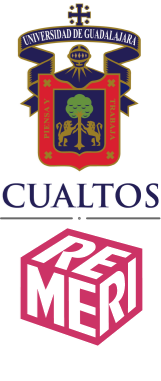Please use this identifier to cite or link to this item:
http://repositorio.cualtos.udg.mx:8080/jspui/handle/123456789/147| Title: | Ensheathing cell-conditioned medium directs the differentiation of human umbilical cord blood cells into aldynoglial phenotype cells |
| Authors: | Ponce Regalado, María Dolores Ortuño Sahagún, Daniel Beas Zarate, Carlos Gudiño Cabrera, Graciela |
| Keywords: | ensheathing cells cell differentiation conditioned media conditioned medium aldynoglia umbilical cord blood |
| Issue Date: | 2012 |
| Publisher: | Human Cell (2012) 25:51–60 Human Cell |
| Citation: | Ponce-Regalado, M. D., Ortuño-Sahagún, D., Zarate, C. B., & Gudiño-Cabrera, G. (2012). Ensheathing cell-conditioned medium directs the differentiation of human umbilical cord blood cells into aldynoglial phenotype cells. Human Cell, 25(2), 51–60 |
| Abstract: | Despite their similarities to bone marrow precursor cells (PC), human umbilical cord blood (HUCB) PCs are more immature and, thus, they exhibit greater plasticity. This plasticity is evident by their ability to proliferate and spontaneously differentiate into almost any cell type, depending on their environment. Moreover, HUCB-PCs yield an accessible cell population that can be grown in culture and differentiated into glial, neuronal and other cell phenotypes. HUCB-PCs offer many potential therapeutic benefits, particularly in the area of neural replacement. We sought to induce the differentiation of HUCB-PCs into glial cells, known as aldynoglia. These cells can promote neuronal regeneration after lesion and they can be transplanted into areas affected by several pathologies, which represents an important therapeutic strategy to treat central nervous system damage. To induce differentiation to the aldynoglia phenotype, HUCB-PCs were exposed to different culture media. Mononuclear cells from HUCB were isolated and purified by identification of CD34 and CD133 antigens, and after 12 days in culture, differentiation of CD34? HUCB-PCs to an aldynoglia phenotypic, but not that of CD133? cells, was induced in ensheathing cell (EC)-conditioned medium. Thus, we demonstrate that the differentiation of HUCB-PCs into aldynoglia cells in EC-conditioned medium can provide a new source of aldynoglial cells for use in transplants to treat injuries or neurodegenerative diseases. |
| URI: | http://148.202.112.41:8080/jspui/handle/123456789/147 |
| ISSN: | 1749-0774 |
| Appears in Collections: | 3210 Artículos |
Files in This Item:
| File | Description | Size | Format | |
|---|---|---|---|---|
| Ensheathing cell-conditioned medium directs the diferentiation of human umbilical cord blood cells.pdf | Documento | 672.38 kB | Adobe PDF | View/Open |
| Enlace a_Ensheathing cell-conditioned medium directs the differentiation.htm | Enlace a publicación | 23.27 kB | HTML | View/Open |
Items in DSpace are protected by copyright, with all rights reserved, unless otherwise indicated.


